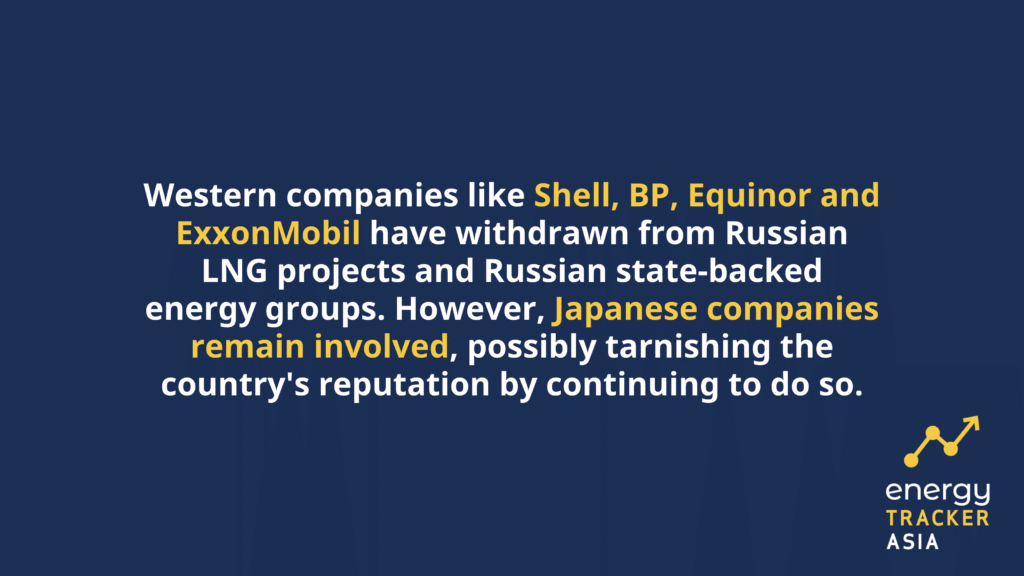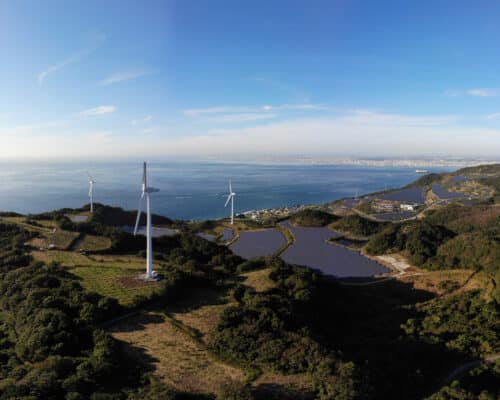The West Divests While Japan Continues Financing Russian Fossil Fuels
06 April 2022 – by Viktor Tachev
In response to the war in Ukraine, many western countries imposed sanctions on Russian fuel imports to express their opposition to the invasion. However, despite joining the West to condemn Russia’s actions, resource-poor Japan has refused to enact sanctions on Russian natural gas and oil imports. This is a sign of passiveness from one of the most developed countries regarding its fossil fuel phaseout. However, there is an even stronger moral aspect to it in this case.
The Global Sanctions on Russian Oil and Gas
Russia’s economy is largely dependent on fossil fuel exports. Currently, 36% of Russia’s total budget comes from oil and gas sales. Cutting Russian crude oil and gas imports was the most logical way for countries to try putting the brakes on the war in Ukraine by limiting the spending power of the Russian economy.
In March, the UK, US and Canada introduced partial or total restrictions on Russian energy imports, including coal, oil, oil products and natural gas. The European Union, which relies on Russia for 40% of its natural gas imports, remained split in its decision. Countries like Germany and the Netherlands even opted against the ban. However, the movement toward phasing out Russian fossil fuels in Europe has gained momentum. The European Union is determined to move away from them before 2030.

Japan Continues Financing Russian Fossil Fuels
The country was vocal about imposing different economic sanctions against oligarchs, Russian banks (including its central bank), and Russian companies. However, when it comes to banning fossil fuels, the country’s position is on the other end of the spectrum. Japan’s Prime Minister Fumio Kishida said that ensuring stable energy supplies is a “national interest.”
In fact, this has been the case for years already. Japanese public and private institutions have deep roots in Russian coal, oil and gas. From 2018 to 2020, public financing institutions like the Japan Bank for International Cooperation (JBIC), Japan Oil, Gas and Metals National Corporation (JOGMEC) and Nippon Export Investment Insurance (NEXI) have provided USD 4.8 billion for fossil fuel projects in Russia. This makes Japan the largest provider of public finance for fossil fuel projects in Russia among the G20 nations.
Even today, the trend still continues, and Japan remains highly dependent on Russia’s fossil fuels. In 2021, Russia accounted for 3.6% of Japanese crude oil imports and 8.8% of its liquefied natural gas imports.
The Risks for Japan and Japanese Companies If They Continue Financing Russian Fossil Fuels
The public and private sectors in Japan are equally involved in financing Russian fossil fuels.
The government and a consortium of institutions have major stakes in various Russian oil and gas projects. As of 2021, the Japanese Government Pension Investment Fund held USD 1.9 billion in Russian-linked assets. The fund contains the largest pool of retirement savings globally, and it remains massively invested in Russian oil and gas companies.
Western companies like Shell, BP, Equinor and ExxonMobil have withdrawn from Russian LNG projects and Russian state-backed energy groups. However, Japanese companies remain involved.
Continuing in this direction can put corporations’ reputations at stake. While climate change has forced us to question what types of energy we are using, the war in Ukraine has caused us to question where we are getting our energy from. Being associated with the Russian war effort increases the risk of tarnishing a company’s image in the eyes of investors, clients and the general public. Furthermore, participation in Russian fossil fuel projects assists Russia’s economy so that it can continue to wage its war.
These days, lists showing companies that are still doing business in Russia continue to be published. Showing up on these lists can do irreparable damage to companies and their reputations.
To avoid these situations, Japan should be looking to halt the financing of the fossil fuel expansion globally. Furthermore, the country should kick-start an urgent government-led approach to substitute fossil fuels with renewable energy to achieve carbon neutrality. The corporate sector will likely follow.
The Consequences of Japan’s Fossil Fuel Relationship With Russia
Japan’s position on Russia’s fossil fuels has negative consequences for both the country’s energy transition and its reputation in the international community. The government should be leading by example. If it continues to favour fossil fuels or make sideways moves, like its hydrogen and ammonia plans, at the expense of renewable energy, then expecting anything else from the corporate sector may be too optimistic. Japan, as a whole, again looks firm in its agenda. Moreover, divesting from fossil fuels does not seem to be on it. Here is to hoping this is just temporary.

by Viktor Tachev
Viktor has years of experience in financial markets and energy finance, working as a marketing consultant and content creator for leading institutions, NGOs, and tech startups. He is a regular contributor to knowledge hubs and magazines, tackling the latest trends in sustainability and green energy.
Read more

